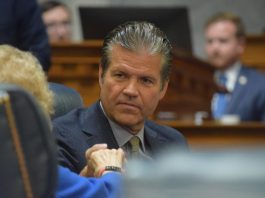Kamalanomics: Part One
Price controls, including wage freezes and price caps, have been used by governments throughout history as a tool to manage economic crises, curb inflation, or protect consumers from rapid price increases. While these measures may offer short-term relief, the long-term consequences have often been more damaging than beneficial. A prominent example from U.S. history is President Richard Nixon’s wage and price freeze in the 1970s, a policy widely regarded as a failure. This article explores the historical context, outcomes, and lessons from price control policies, particularly focusing on their potential impact on the supply chain and inflation.
Nixon’s Price and Wage Freeze: A Failed Experiment
In 1971, facing rising inflation and a sluggish economy, President Nixon implemented a 90-day freeze on wages and prices as part of a broader economic plan known as the New Economic Policy (NEP). This move was intended to control inflation, which had reached over 5%, while also stimulating economic growth. The freeze was initially popular, as it temporarily halted price increases and provided a sense of stability. However, the long-term effects were less favorable.
The immediate result of the freeze was a temporary reduction in inflation. However, when the controls were lifted, inflation surged again, reaching double digits by the mid-1970s. The price and wage controls distorted market signals, leading to shortages of goods as producers found it unprofitable to produce at artificially low prices. This situation was particularly acute in the food and energy sectors, where supply shortages became commonplace.
Nixon’s policy was eventually reversed due to these negative effects, highlighting the inherent flaws in such an approach. The key issue was that price controls did not address the underlying causes of inflation, such as excessive demand or supply constraints. Instead, they merely postponed the inevitable price adjustments, which, when they occurred, were even more severe.
Other Historical Examples
Price controls have been used in various forms throughout history, often with similarly poor outcomes:
- Ancient Rome: Emperor Diocletian imposed the Edict on Maximum Prices in 301 AD to curb inflation. The result was widespread black markets and a collapse in the availability of goods, as merchants could not sell at the mandated prices. The policy was eventually abandoned, and the Roman economy continued to decline.
- World War II: During the war, many countries, including the United States and the United Kingdom, implemented price controls to prevent wartime inflation and ensure the availability of essential goods. While these controls were somewhat effective during the war due to the unique circumstances (rationing, government control of production), they were quickly lifted afterward as peacetime economies returned to normal functioning.
- Venezuela: More recently, Venezuela’s government imposed strict price controls on basic goods as part of its socialist economic policies. The outcome was catastrophic, leading to severe shortages, black markets, and hyperinflation. The country’s economy has been in freefall, with price controls playing a significant role in its collapse.
The Impact of Price Controls on Groceries and Inflation
Given this historical context, what would be the likely impact of implementing price controls on groceries in today’s economy, especially when these goods have not outpaced general inflation trends?
Price controls on groceries could temporarily make food more affordable, providing short-term relief for consumers. However, similar to historical examples, such controls would likely lead to unintended consequences. Producers and retailers might find it unprofitable to sell at the controlled prices, leading to reduced supply, shortages, and lower-quality goods. Black markets could emerge as consumers seek to purchase goods outside the controlled system, often at much higher prices.
Moreover, price controls fail to address the underlying causes of inflation, such as supply chain disruptions, increased production costs, or shifts in consumer demand. Instead, they simply suppress the symptoms. When these controls are eventually lifted, the market is likely to experience a sharp correction, with prices rising rapidly to catch up with the suppressed inflation, potentially leading to even higher inflation rates.
In the case of groceries, which are essential goods with relatively inelastic demand, supply shortages could have severe social consequences, including food insecurity and increased inequality. Producers might also shift their focus to export markets where they can fetch higher prices, exacerbating domestic shortages.
Conclusion
The historical record suggests that price controls, including wage and price freezes, are at best a temporary fix and at worst a catalyst for more severe economic problems. While they might offer short-term relief, the long-term consequences—supply shortages, black markets, and eventually higher inflation—often outweigh the benefits. For groceries, which have not outpaced inflation recently, imposing price controls could disrupt supply chains and lead to shortages, ultimately exacerbating inflation rather than controlling it.
Price controls are a blunt instrument that fails to address the root causes of inflation. Policymakers would do well to heed the lessons of history and focus on more sustainable solutions, such as improving supply chains, fostering competition, and implementing targeted subsidies for those most affected by price increases.





.
So, suddenly Joe Wallace embraces FREE MARKETS as a Republican Party priority?
BULL-SH&T !
Where were you when Trump imposed tarrifs and drove up prices, Joe?
Where were you when Trump declared he has the right to tell American business where they can, and can’t manufacture their products, Joe?
The Trump-Vance Ticket is a Repudiation of Free-Market Conservatism…….where have you been, Joe?
Vance, embraces not just tariffs, but also policies like a higher minimum wage and increased barriers to corporate mergers — even openly praising President Joe Biden’s aggressive antitrust chief, Lina Khan…why are you silent on this Joe?
Suddenly? Suddenly Joe Wallace is a fiscal conservative? If that is true, then Joe Wallace would demand Trump lower deficits and stop driving up the national debt….which we all know, is what Trump does, create debt, then walk away and declare bankruptcy…….remember, this guy declared bankruptcy THREE TIMES! Fiscal conservative Joe Wallace have a problem with that? NO HE DOES NOT.
Unemployment under Trump in his only Term in office grew to 16%.
SIXTEEN PERCENT UNEMPLOYMENT!!!!!
Yeah. Right.
Joe Wallace, where were have YOU been?
Oh wait. Helping Artificial Intelligence (AI) replace American workers with software and robots. Wait! Trump advocates for that…….maybe THIS IS WHY Joe Wallace would write a facile, no-substance article like today’s column.
.
It’s worth mentioning too:
Joe Wallace is a California Silicon Valley technology investor.
For some reason, he writes today’s column, opposing lower food prices for American families.
Who is he protecting?
If I am a Trump Dead-Head, and I am concerned about lowering the cost of housing, medicine, and food…..and Joe Wallace is opposed to that? WTF? Right?
The commie demoncrats trying to destroy this country since they lost the civil war………….WITHOUT A DOUBT
Comments are closed.